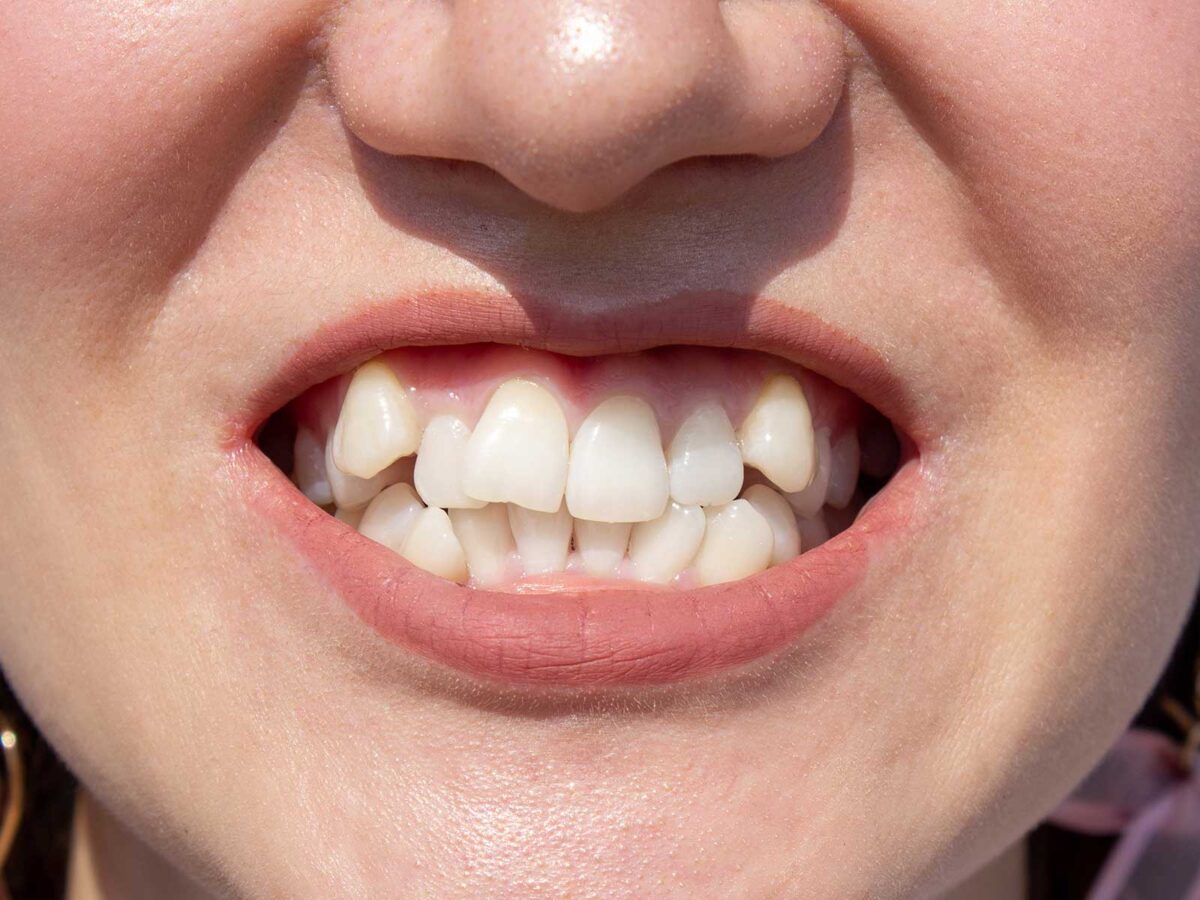Blog
Dental hygiene tips for healthy teeth & gums

What causes overlapping of teeth?
Overlapping of teeth is considered a type of malocclusion. There are various reasons for this misalignment, and if not taken care of, it can lead to serious oral health issues.
Adults and kids can both suffer from one or more overlapping teeth. Commonly people think it is only one crooked tooth and overlook this issue. But it is important to take proper care of it.
There are multiple reasons for this, but the most common are genetics or a habit of thumb-sucking. Apart from this, different sizes of the lower and upper jaw can also cause teeth to overlap.
What are other causes of overlapping teeth other than genetics?
Apart from genetics, there are various other factors that can contribute to this issue and make it worse:
- Giving your child to use a pacifier above the age of 3
- It can also be hereditary
- Incorrectly fitted crowns and fillings
- The jawbone is too crowded, or there is not enough room for it
- Problems associated with cleft lip and palate
- A jaw injury that results in misalignment
- Teeth that are shaped abnormally
- A tooth that cannot break through the gums because it has been blocked
- An extra tooth
- An oral or jaw tumor
So, these are the most common causes that can lead to overlapping teeth. If you happen to have any of the above-mentioned conditions, then you should get it checked by the dentist.
What health issues can overlapping teeth cause?
Mainly this condition affects the bite function in most cases. If your teeth are badly overlapped, it can result in overbites, open bites, underbites, or crossbites in the longer run.
In more severe cases, an overlapped tooth may also raise the risk of a cavity especially if you have overlapped teeth that make it hard to floss or brush thoroughly.
As a result of the difficulty in brushing and flossing properly, overlapping teeth can also lead to gingivitis or gum disease. Without treatment, this infection can lead to periodontitis, which is much more severe.
When should you consider getting your overlapping teeth fixed?
As mentioned above, in some severe cases, it becomes very important to get this issue addressed as soon as possible. So, here are some of the situations in which it becomes imperative to get an overlapped tooth fixed:
- If lisping is caused by overlapping
- When grinding or clenching them becomes a habit
- It is difficult to chew or speak
- If jaw pain results from alignment problems
- When it becomes habitual for you to bite the inner cheeks
How can a badly overlapped tooth be treated?
Once you have decided to fix overlapping, the next step is to choose a treatment approach. It will be your orthodontist or dentist’s responsibility to guide you through this process and help you decide on the most suitable treatment.
There are several ways to treat overlapping teeth, and some of them are listed below:
- Braces: Traditional braces are often the first choice of treatment against overlapping teeth. They consist of metal wires, brackets, and elastic bands. It takes approximately 1 to 3 years for braces to work by constantly pushing your teeth to a better position and alignment. You can move your teeth into their proper positions due to this pressure reshaping your jaw structure. Though, the success of braces depends on various factors, including your age.
- Veneers: Veneer is another option to treat your overlapped tooth. In order to improve the appearance of a tooth, dental veneers are attached to its front surface. Some dentists recommend veneers for mild cases of misalignment but not for moderate to severe cases.
- Tooth extraction: Your dentist may suggest you go for a tooth extraction surgery if you have severely overlapped teeth and braces, veneers, or oven aligners that can not cure the issue.
Lastly, before taking any treatment method, you must consult your dentist because he can guide you better.
